Author: David C, Bankless; Translator: Tao Zhu, Golden Finance
Decentralized Science (DeSci) is a new way to conduct scientific research using blockchain to make research more open, clear, and accessible.
In the traditional scientific system known as "TradSci," central institutions manage research. Examples of these institutions include universities, government agencies, and private companies. While this system has brought tremendous progress, it has also created barriers to progress. These barriers include high costs of research and publishing, limited access to knowledge, and slow collaboration.
DeSci, on the other hand, focuses on open science, a movement that believes that all knowledge should be freely accessible. By using tools such as decentralized autonomous organizations (DAOs), smart contracts, and tokens, DeSci helps scientists take charge of how research is funded, completed, and shared. It supports global collaboration, encourages open source data sharing, and removes gatekeepers that restrict access to scientific discoveries.
In this system, researchers have more ways to fund their projects. They can publish their discoveries on open access platforms or tokenize their intellectual property to get more support or additional income. Overall, the goal is to build a more inclusive and transparent world of scientific research.
What Problem Does DeSci Solve?
There are several problems with the traditional way of doing science that DeSci hopes to solve. These problems not only slow down the progress of scientific research, but also limit who can contribute to and benefit from scientific research.
Lack of Funding
Only a small fraction of researchers’ work in TradSci is funded.
Large research institutions put the majority of funding into hot topics, leaving smaller, but equally important research unfunded. Many researchers struggle to move their discoveries from the lab into real-world solutions that help people, a challenge often referred to as the “Valley of Death.” This bottleneck limits the impact of valuable ideas.
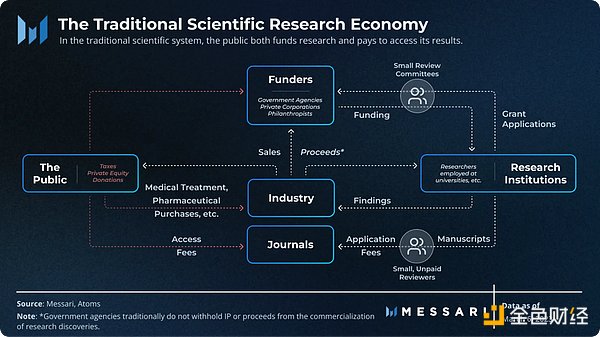
Barriers to access
Most scientific research remains behind journal paywalls, meaning only those with access or money can read it. This limits the ability to share knowledge widely and slows collaboration. For many, even accessing past research can be a major challenge.
Lack of transparency and trust
Scientific findings are sometimes criticized because they are difficult to replicate or prove. This "reproducibility crisis" occurs when researchers have little reason, if any, to check each other's work or share their raw data. Funding and publishing decisions are also often made in secret, which can lead to biased research results.
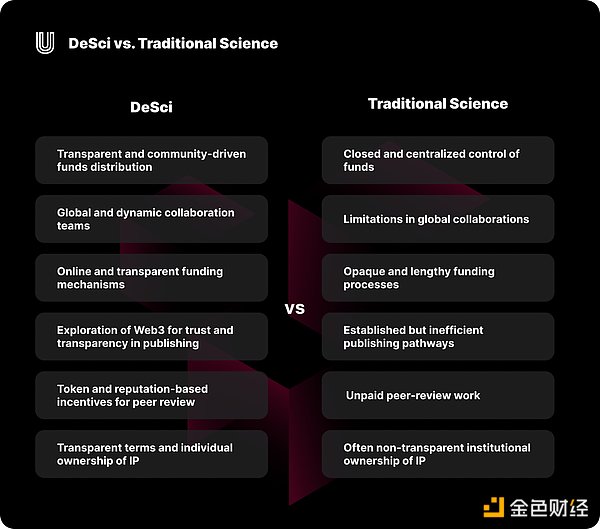
Inefficient collaboration
Scientists often work alone because the industry is so competitive that the success of one team often comes at the expense of another. This leads researchers, institutions, and countries to keep their data secret, which slows progress and makes it harder to solve big problems like climate change or medical breakthroughs.
How DeSci uses blockchain?
DeSci uses blockchain technology and open source tools to solve these problems in traditional science. By distributing systems and making information more accessible, DeSci can make scientific research faster, fairer, and more reliable. Here are the ways it can contribute.
Decentralized Funding
DeSci does not rely on institutions or governments for funding. Instead, it uses a platform run by a decentralized autonomous organization (Dao) and tokens.
These systems allow researchers to raise funds directly from communities around the world. For example, some projects use quadratic funding, such as Gitcoin. This approach focuses on giving larger grants to projects that receive many small donations, rather than just a few large ones. This ensures that everyone in the scientific community can have a say in the projects that get funded.
Open Access and Data Sharing
The permanence of blockchains means that they can make scientific research secure and immutable. This makes it easier for anyone to access research and check its accuracy. Additionally, with a decentralized database, researchers can publish their research on open science platforms that anyone can read for free. Using blockchain also enables global data sharing, and scientists can collaborate across borders by securely sharing raw datasets and findings.
Transparent and Fair Peer Review
The peer review process is critical to ensuring the quality of research, but it is often opaque in TradSci. In DeSci, blockchain can track and reward reviewers for their contributions, ensuring that reviews are fair and credible. Smart contracts can even manage the peer review process, making it transparent and open to the entire scientific community.
Tokenization of Research
One of the most exciting features of DeSci is the ability to tokenize intellectual property. Researchers can create NFTs to represent ownership of their discoveries. These tokens can be used by other researchers to create additional revenue streams, or traded, creating new funding opportunities. For example, researchers might set funding goals based on the market value of the tokens. That way, the project will only move forward if it receives enough funding. Overall, this system puts more control in the hands of scientists and their supporters.
Solving the “Reproducibility Crisis”
As mentioned earlier, the “reproducibility crisis” occurs when scientists are unable to repeat experiments and get the same results, making research difficult to trust. DeSci solves this problem by rewarding scientists who repeatedly check experiments and prove that the results are accurate. Using blockchain technology, researchers can keep clear records to show that their work is correct, making scientific research more trustworthy.
DeSci Platforms
Decentralized Science (DeSci) aims to do more than just rethink how science is done; it also builds practical tools to transform key aspects of the research process. These platforms aim to solve specific challenges such as funding, publishing, and conducting research by introducing decentralized, blockchain-based solutions, all of which play a vital role in making scientific research more open, collaborative, and efficient.
Funding Platforms
Securing research funding for innovative projects is difficult. DeSci platforms alleviate this problem by connecting researchers with supporters and using DAOs and blockchain to make funding fairer and more accessible. Here are some of the platforms focused on transforming funding.
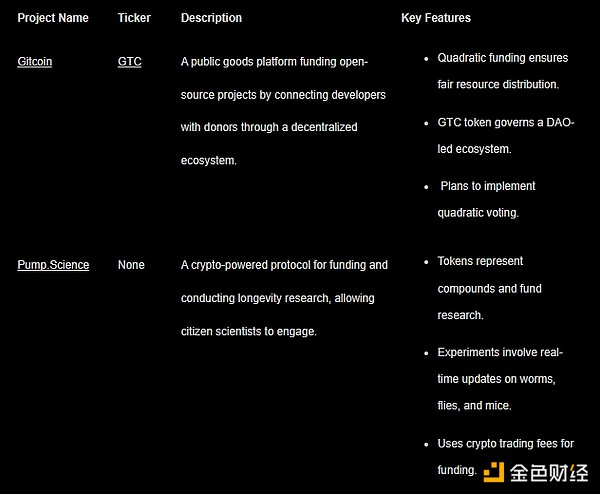
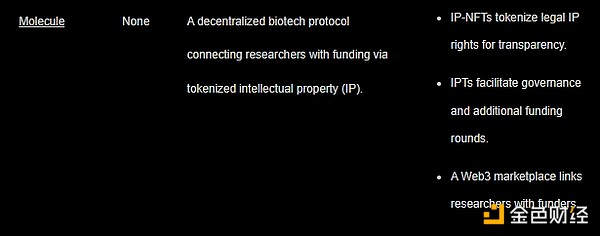
Publishing Platform
As mentioned earlier, scientific research is often locked behind a paywall. Distributed scientific publishing platforms use blockchain to provide open, secure access, enhance transparency and collaboration. Here are some of the most popular projects:
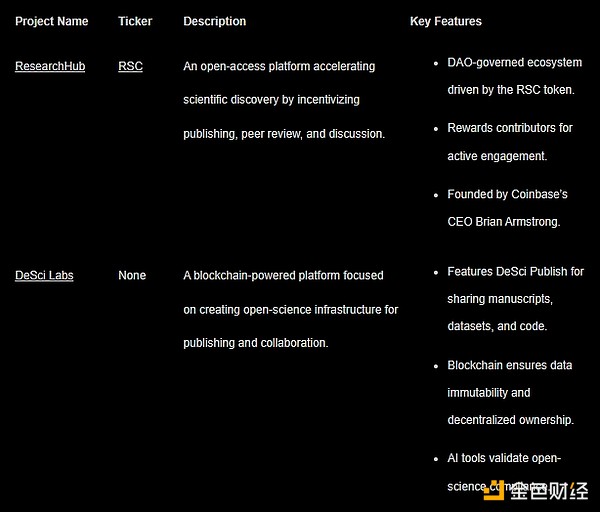
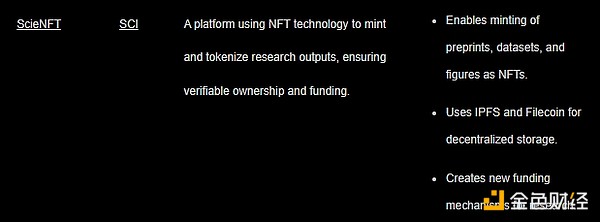
Research Platforms
Using tools like IP-NFT and DAO, blockchain-based research institutions can create new ways to share and manage discoveries while ensuring transparency. Here are the main groups specializing in different studies:
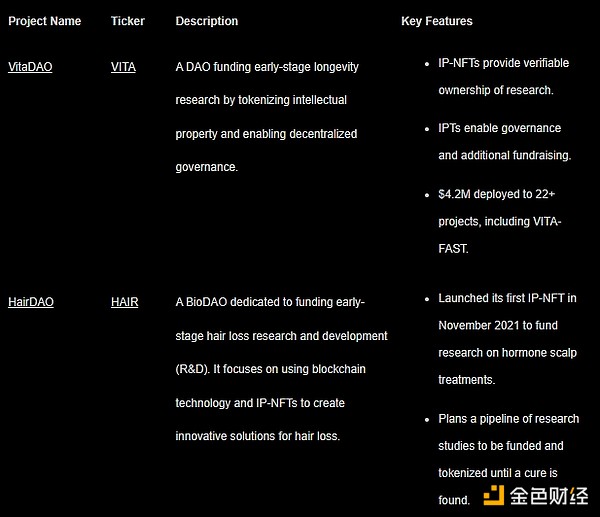
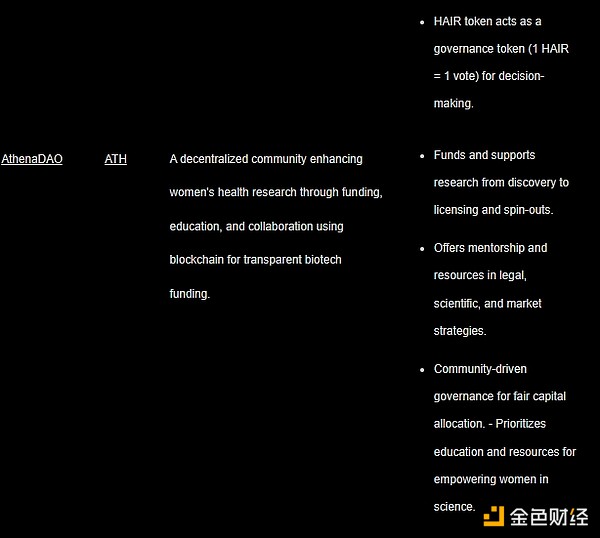
 Brian
Brian
 Brian
Brian Miyuki
Miyuki Alex
Alex Anais
Anais Joy
Joy Brian
Brian Weiliang
Weiliang Joy
Joy Miyuki
Miyuki Alex
Alex